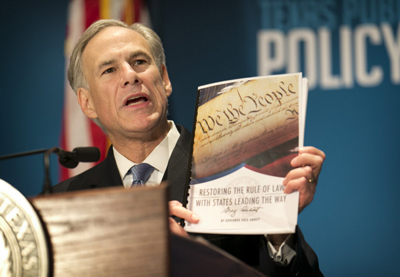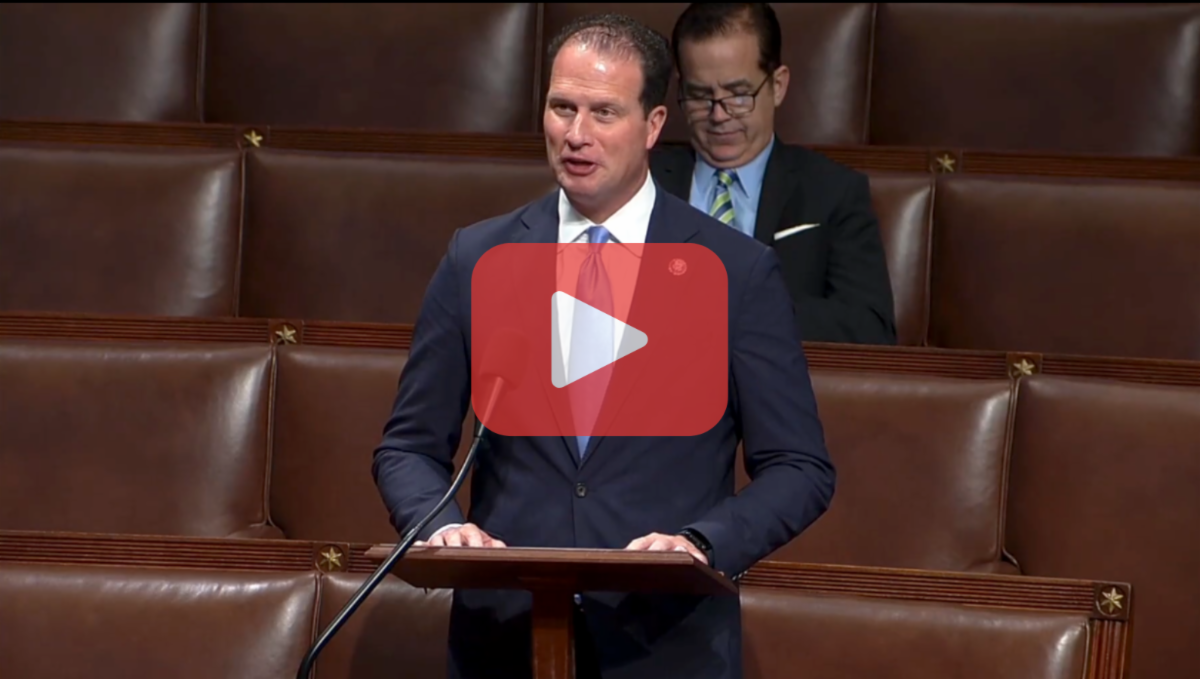Article V Convention is the Wrong Way to Address our Constitutional Crisis
 Why do a number of my fellow conservatives – or those posing as conservatives – believe that an Article V Convention of the states call to amend the Constitution will solve the present Constitutional crisis?
Why do a number of my fellow conservatives – or those posing as conservatives – believe that an Article V Convention of the states call to amend the Constitution will solve the present Constitutional crisis?
The U.S. Constitution is not the problem.
What’s pushed us to this dangerous precipice is our failure to follow the Constitution and Congress’ unwillingness to limit the unconstitutional actions of the federal judiciary and an overreaching Executive branch.
The latest politician to jump on the bandwagon and call for an Article V Constitutional Convention is the Governor of Texas, Greg Abbott. He proposes to invoke a never previously used provision of the U.S. Constitution, Article V, in order to call a convention of the states and pass a series of constitutional amendments to restore states’ rights.
This would require 34 states to agree to such a convention; and (even more difficult to imagine) convince those states to endorse the 9 specific amendments to the Constitution proposed by Abbott. Then three-fourths of the states would have to ratify those amendments.
As a friend of mine has observed: You have a better chance of winning the lottery than seeing all that happen in our lifetime.
Many of the suggested amendments are worthwhile ideas; but here is the first question that comes to mind: Assuming you can get 34 states to agree to such a constitutional convention, how do you limit such a gathering to consideration of only those specific constitutional amendments that Abbott has proposed?
It won’t happen.
Such a convention of the states opens the door to consideration of other proposed amendments not to the liking of Constitutional conservatives. Abbott’s response to this is that “it requires only 13 states to block a runaway convention”.
Doesn’t Greg Abbott realize that his point about the 13 states works the other way as well? It would take only 13 states to block Abbott’s proposed amendments from being passed. I can name you 20 states today that would never agree to support Greg Abbott’s plan.
Writing in the January 13, 2016 issue of Forbes, David Davenport summed up Abbott’s proposal and its likelihood of passage: “This idea is ‘terrible, horrible, no good, very bad.’ But we are likely to be spared the worst of it because it is also a non-starter which even its proponents surely recognize is pure political rhetoric (italics added) and not a serious policy proposal.”
Convincing 38 states to ratify Greg Abbott’s proposed changes will not happen. But it gives the new governor a bully pulpit to inveigh against the unconstitutional actions of unelected federal judges and an Obama administration which ignores the limits of executive power.
If conservatives truly want to rein in overreaching federal judges and an out of control Executive branch, there is a far simpler – and more effective – course of action that could be taken. To address the problem of federal judges deciding political questions best reserved for the elected legislators at every level of government, there already is a remedy in Article III Section 2 of the U.S. Constitution. Congress can simply reassert its duty to legislate on political issues by including in the text of appropriate legislation a section that prohibits the federal courts from hearing challenges to that legislation. Such an approach only requires the support of the majority of the U.S. House and Senate along with the signature of the President.
As for Executive overreach, Congress has the power of the purse. Use it.
We truly face a Constitutional crisis. We desperately need a conservative president to provide the leadership needed to persuade a Republican majority in Congress to pass legislation to return power to the states and the American people themselves. Combining such a majority in Congress with the right leader as President could make this happen – even in our lifetime.
Tom Pauken is a former Reagan official and Texas Republican Party Chairman.








